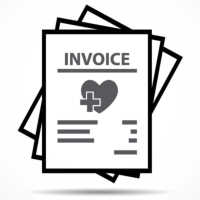
Compensation and Damages
I like people that ask a lot of questions. But not every answer can fit in a FAQ. What follows is general information and is not intended as specific legal advice (please check out my disclaimer).
What is negligence?
Negligence is the failure to exercise ordinary care. Ordinary care means using the level of caution, awareness, and skill that a reasonable person would use under similar circumstances. Negligence is one of the legal standards that must be met before a person is financially liable for the damage he causes. Figuring out what a reasonable person would do in a specific circumstance often depends on the specific facts of a situation. Lawyers and judges rely on laws, prior cases, and common sense to determine whether an action is negligent. If a person commits a negligent act, he is usually liable for all of the financial consequences that follow from that act. It does not matter whether the negligent person intended the damage or injury, he is liable because of the negligent act.
If I am hurt by someone’s negligence, what can I recover for?
Generally speaking, if someone negligently injures you, you can seek the cost of every consequence of your injury. The total is a monetary amount intended to represent the damage done to you. The total amount is usually made up of your past medical expenses, lost wages, other expenses, medical supplies, estimated future medical expenses, and pain and suffering. If you have unique losses from your injuries, a personal injury lawyer can help you estimate the value of those losses. If you are paid for all your legal damages, the law pretends that you are made whole again. I can promise you that no one injured in an accident is ever really made whole again. The best the law can offer you is to make the wrongdoer pay for your losses. Sadly, injuries can not be undone.
What is a settlement?
A settlement is a lump sum payment in exchange for you releasing the wrongdoer from any further claim. You and the wrongdoer (often acting through attorneys and insurance companies) may choose to settle your claim for a variety of reasons. The legal process takes time and involves some uncertainty. Even if you have a strong case, you still risk receiving nothing for a variety of reasons (some technical, some human). To account for this uncertainty, the wrongdoer or his insurer will often make offers to settle your claim prior to trial. If you choose to accept a settlement, your personal injury claim is extinguished. Settlements are usually not itemized, so you won’t know what amount of money is being paid for what reason. All you will know is that the total settlement is being offered to make you give up any further legal action against the wrongdoer for your injuries. One of the benefits of hiring a attorney like me is that personal injury lawyers are familiar with the process used to value injuries. I let my clients know whether I think an offer is fair, and what they can expect if they go to trial. Without a lawyer, it is very hard to know whether an offer is a fair one.
How long does it take until I receive a settlement or jury verdict?
Recovering from a serious injury takes time. The legal process takes time. Taken together, you should be aware up front that personal injury claims take time to resolve. Some of my clients have reached maximum improvement in a matter of months, some clients continue intensive medical treatment for many years. Pursuing a legal claim against the wrongdoer adds many additional months, or even years, beyond the time when you reach maximum recovery. So there is no such thing as a quick and easy personal injury claim.
Who Pays for My Medical Expenses While My Personal Injury Case is Ongoing?
There are a number of ways to cover your medical expenses while your case is ongoing. In DC, Virginia, and Maryland, your health insurance should still cover you, regardless of whether your injuries were due to someone else’s negligence. If your case is successful, you may be obligated to pay your health insurer back (it depends on the fine print in your policy), but your health insurance should protect you while you wait for your case to resolve. If you don’t have health insurance, you may have Personal Injury Protection (“PIP”) or Medical Payments (“Med Pay”) coverage under your auto insurance policy that can help you with out-of-pocket medical expenses. If you don’t have PIP or Med Pay either, often you can speak with your doctor or medical providers to arrange payment over time or at a later date. While you are ultimately responsible for paying for your medical expenses, a lawyer can help you navigate your insurance coverages and figure out how to cover your treatment expenses while moving forward with your case.
